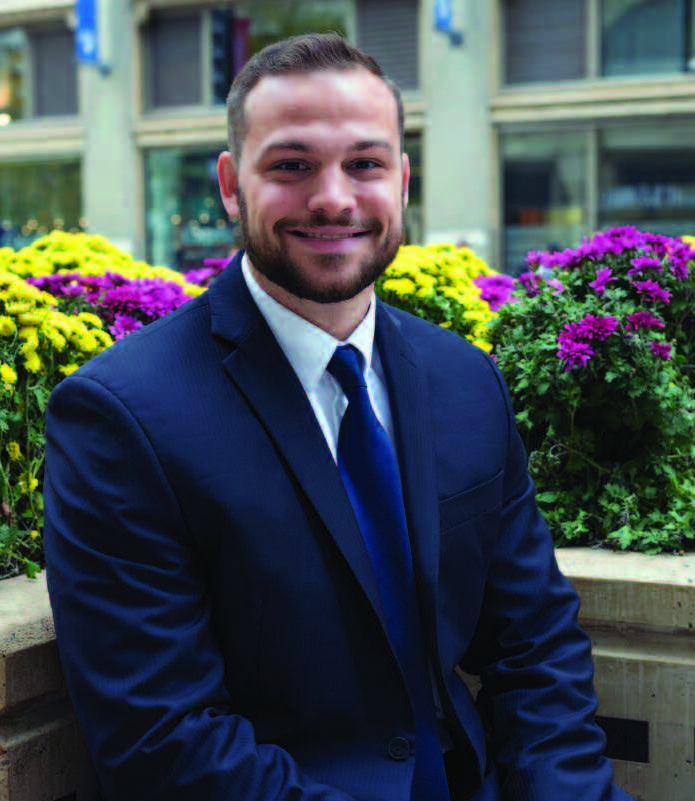
F
irsthand experience never hurts, especially when it comes to
crafting your legal career.
Just ask second-year student Tobin Klusty. Fresh from an American
Medical Association Ethics Department Scholar position this past summer, the
promising second-year student is embracing the intersection of health care and civil rights.
A graduate of Michigan State University, Klusty came to DePaul
University College of Law for its location and deep alumni network. “Chicago is
full of practicing attorneys, and has a very large professional network.
DePaul’s large group of alumni enhances my ability to make important connections,
which will aid my career search,” he said.
Klusty credits Legal Writing Instructor Allison Ortlieb, Mary
and Michael Jaharis Health Law Institute (JHLI) Executive Director Katherine
Schostok and JHLI Faculty Director Wendy Netter Epstein with guiding his journey at
DePaul. His specific academic journey focuses on litigation, but he is also
interested in pursuing policy and trial advocacy.
“I am attracted to litigation due to its competitive atmosphere
and complex argumentative nature. I am also attracted to policy because of its
wide impact on the community,” he said. “Within litigation and policy,” he added,
“I am most interested in health law and civil rights, specifically how health
law impacts civil rights.”
“Professor Ortlieb has been an outstanding role model, being
a reliable source of professional advice and helping me craft my legal writing
skills. Professor Schostok has guided me through my quest as a fellow of the
Jaharis Health Law Institute, and recommended me for the [American Medical
Association] Ethics Scholar position.
Lastly, but certainly not least,” he continued, “Professor
Epstein has been an exceptional mentor, and has expanded my knowledge of the
U.S. health care system through my research assistant position for her upcoming
literature-review manuscript on health care compensation models.”
“Health law is a very interesting and expanding field that has
a high demand for competent young attorneys,” Klusty said. “The application of
health law also has strong influence on civil rights, namely the opportunity for
minority groups to access affordable and adequate health care.” Klusty added
that his dream job would be a litigator for the Office of General Counsel for
the Department of Health and Human Services, and he seems to have found his
footing along the right path.
As the AMA’s Ethics Department Scholar this past summer,
Klusty said he was able to see how a self-regulating organization conducts
itself in practice and he learned the importance of wording when it comes to
policy. As such, Klusty developed a strong interest in working with policy.
Among the projects Klusty contributed to as an AMA Ethics
Department Scholar include researching legal implications of the AMA’s Code of
Medical Ethics; drafting the Reference Committee on Amendments to Constitution
and Bylaws Report during the AMA’s annual policy meeting; coproducing the
Council on Ethical and Judicial Affairs Report in conjunction with Ethics Policy staff;
preparing detailed summaries about the legal and ethical issues of “responsible
physician prescribing, the relationship between pregnancy and advance
directives, and informed consent regarding medical research”; and authoring and
coauthoring several articles on pivotal cases in health law and topics at the
intersection of health law, medicine and bioethics for the AMA Journal of
Ethics.
Klusty’s time spent with the AMA helped him develop his ability
to write for a publication under a short deadline while focusing on conducting
thorough research. He also was able to observe the judicial function of the
AMA’s Office of General Counsel and the Council of Ethical and Judicial
Affairs. This experience helped refine his career vision, giving him a much
clearer understanding of what he wants his career path to be and how he will
achieve his professional goals with the support of DePaul Law’s faculty, staff
and alumni along the way.